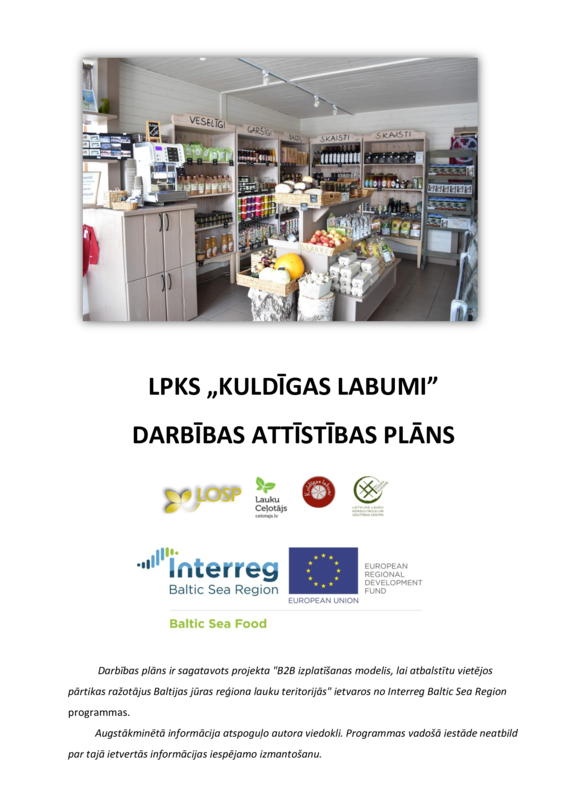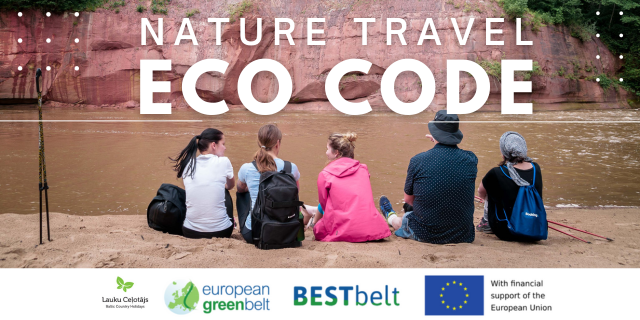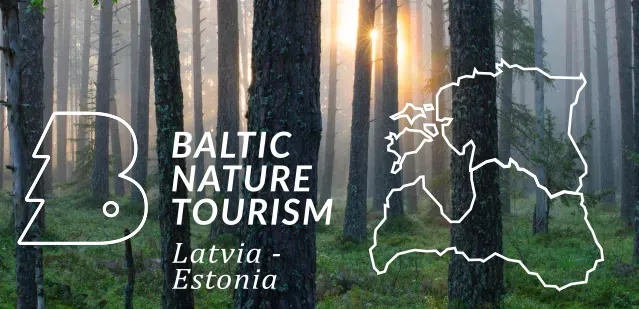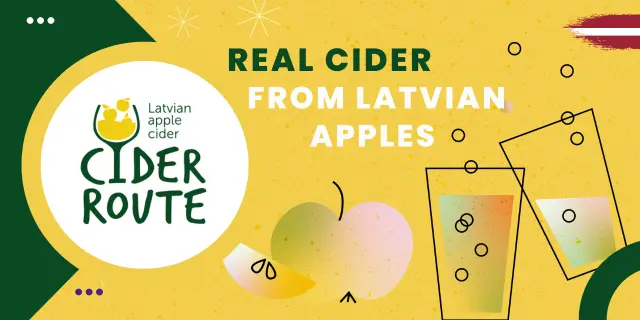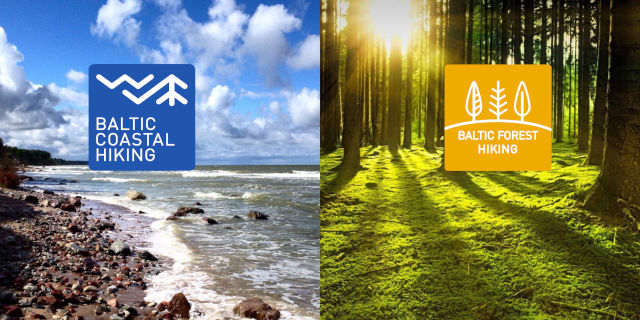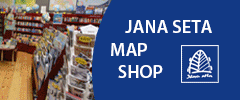
01.10.2017 - 30.09.2020 (Interreg Baltic Sea Region No.#R047 Baltic Sea Foo)
B2B distribution model supporting local food sector in Baltic Sea region rural areas
EVALUATION REPORT OF BUSINESS MODEL PILOTING
This report details how the various pilots were implemented and how the piloting organisations worked with the model and the 9 elements it contains: Customer Segments; Value Proposition; Channels; Customer Relations; Revenue Stream; Key Resources; Key Activities; Key Partnerships; Cost Structure.
On March 11, 2021, 44 Latvian entrepreneurs met in an online discussion organized by "Lauku ceļotāja" and LOSP /lv/news/item/view/1110 to share their experience on how to sell their products to direct vcustomers, other companies - shops, caterers , the importance of online shopping and social networks, how cooperatives help to spread production. Participants included food producers and processors, cooperatives, distributors, caterers, internet potentials, food bloggers and other stakeholders.
The document (in English) provides a summary of the meeting, key findings and suggestions from the speakers.
The information section BUY PRODUCTS is created in the information profile "Lauku labumi". There are already 106 Latvian growers and producers of rural products who have submitted their information, and the number continues to grow. Until now, the information of "Lauku labumu" was devoted only to the possibilities of visiting farms. The new section complements it and is dedicated to the produced products and their purchase options on the farm, in sales outlets and in e-shops.
How to find the food product you are interested in?
• Product groups
Farms are arranged in several product groups according to the main type of products: fresh vegetables and greens; pickles and preserves; fresh fruits, berries and nuts; jams and syrups; dairy products; cereals, seeds and pulses; bread and confectionery; olas; at the end; fish; honey and beekeeping products; non-alcoholic and alcoholic beverages; sweets; mushroom tea and coffee.
• Farm information
One farm can produce and offer several types of products, such as both vegetables and dairy products - then it can be found in several product groups. It also provides more information about the farm itself, specialization, size, contact and location, as well as shops, markets, e-shops and other places where you can buy its products outside the farm.
• Map
All producing farms are also marked on the map with a search selection - "Producers", where they can be searched by main product groups or by each specific product.
Baltic Sea Food
LOCAL FOOD BUSINESS-TO-BUSINESS DISTRIBUTION MODEL
The target group of this document is mainly established local food networks and distributors already selling their products business-to-consumer (B2C). The goal is to create new sales channels for business-to-business (B2B) through small-scale local-food networks, by cooperation and increasing value of their products in a shorter supply chain. The target customer groups will be able to meet the demands and expectations from their customers of local food, looking for special and premium products from local or specific regions.
Attachments:
HOW TO DISTRIBUTE LOCAL FOOD BUSINESS-TO-BUSINESS
A SHORT GUIDE FOR START-UPS AND NETWORKS
The target group of this handbook are local-food producers and suppliers organized in the form of food networks. The goal is to create new sales channels for business-to-business (B2B) through small-scale local-food networks, by cooperation and increasing the value of their products in a shorter supply chain. It is also to inspire established local-food producers and distributors already selling their products business-to-consumer (B2C).
DEVELOPMENT PLAN FOR PILOT REGION COOPERATIVE "KULDĪGAS LABUMI"
The target of research is to analyse development possibilities for LPKS (cooperative) “Kuldīgas labumi” (Goodies from Kuldiga) and work out operation plan. Several activities - evaluation of current activities and capacity of organization and opinion polls of members, current and potential clients as well as evaluation of current and potential business area and internal and external resources – took place. Recommendations for the current business model (B2C) and plan of production supply for B2B model where worked out.
Operational plan for 2020 – 2025 consists from four parts: development of organization, communication and coordination system; development of products and new possibilities in B2C sector; how to start-up and develop B2B model and logistics. Development of logistic as well as creation of storehouse are the most challenging tasks of cooperative to develop business, especially in B2B sector.
List of activities and recommendations are presented for each activity based on SWOT, the results of opinion polls, analyses of market trends and theory of business. The most important focus groups are local HoReCa clients, local enterprises, state education institutions, hospitals and organizations who organized procurement of food. List of organizations, as well as recommendations how to reach them are included. The development of B2B in tourism sector is also discussed. Recommendations include also guidelines for different seminars and other educational activities to improve level of knowledge and competences in whole value chain.
Operational plan of cooperative “Kuldīgas labumi” designed within the BSF project is available for general public. Any organization who is interested to improve their performance, develop or start new activities in food business or think about start – up of food network is able to find suitable information about various factors having influence to this business. Insight off producers, partners and stakeholders on B2B issues are increased by level of knowledge and appropriate information and will support cooperation in future.
“Local food business-to-business distribution model” (BMD), Handbook “How to distribute local food business-to-business – a short guide for start-ups and networks” and “Development plan for cooperative “Kuldīgas labumi”” are very important tools to expand idea about B2B model implementation and support cooperation idea among food producers, distributors, HoReCa, networks and end-users in Latvia.
Attachments:


